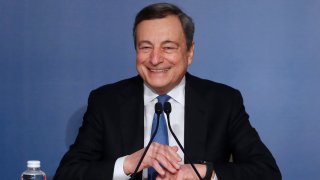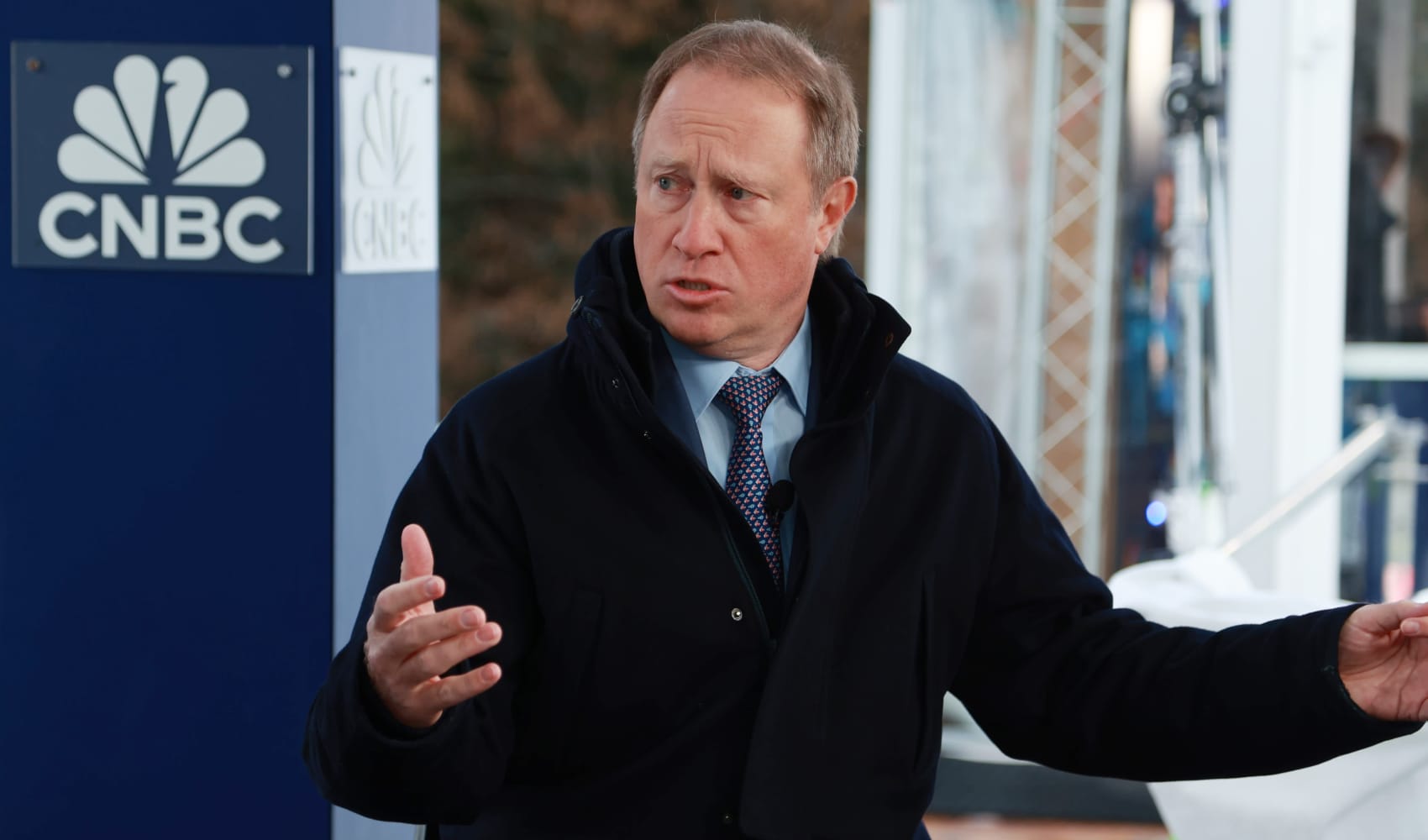
- Draghi's government, comprised mostly of politicians from different parties and some technocrats, has appeased markets due to its parliamentary support and reform plans.
- Analysts at Goldman Sachs said Draghi's departure would "trigger uncertainty regarding the new government and its policy effectiveness."
- Over 1,000 of the country's parliament and regional representatives are due to begin voting on Jan. 24.
Italy is back on the radar of many investors as an upcoming presidential vote threatens the political stability seen over the last year.
In two weeks, the country's lawmakers and regional delegates will decide who should become the next president as the term of Sergio Mattarella comes to an end on Feb. 3. Over 1,000 of the country's parliament and regional representatives are due to begin voting on Jan. 24.
Why does it matter?
Get Boston local news, weather forecasts, lifestyle and entertainment stories to your inbox. Sign up for NBC Boston’s newsletters.
The main issue is whether Mario Draghi, currently the country's prime minister, will be chosen as the new president.
The appointment of Draghi, the former president of the European Central Bank, to national politics about a year ago put an end to several years of political turbulence in the country. The yield on the 10-year Italian bond dropped to its lowest level of 2021 shortly after news that Draghi was likely to be the new prime minister.
His government, comprised mostly of politicians from different parties and some technocrats, has appeased markets due to its parliamentary support and reform plans.
Money Report
Draghi's potential departure from government, however, risks this economic and political stability.
Fears of economic and political stability
Analysts at Goldman Sachs said in a note Thursday that Draghi's departure would "trigger uncertainty regarding the new government and its policy effectiveness."
"Given the diverging interests among the parties in Parliament and the typical length of time it takes to form a new government, we are more concerned than the consensus that this scenario would entail a delay to the implementation of the Recovery Fund and related reforms," they said. The Recovery Fund refers to the 191.5 billion euros ($216.68 billion) that the country is due to receive from the EU to deal with the economic shock from the coronavirus pandemic.
The disbursements of the funds are linked to the implementation of previously promised reforms. Both aspects are seen by experts as pivotal to fostering the Italian economy, which has struggled for many years.
Wolfango Piccoli, co-president of the consultancy firm Teneo, also pointed out short-term risks to the economic recovery if Draghi becomes president.
"Regardless of whether Draghi is elected as president or not, Italy is unlikely to hold parliamentary elections a year ahead of schedule. However, the process to install a new prime minister and a new government is likely to be noisy and the current heterogeneous ruling coalition may undergo a partial reconfiguration," he said in a note Wednesday.
The current parliamentary term expires in 2023 and Italians will then head to the polls to choose a new parliament and government, if no snap election takes place in the meantime.
Draghi signaled in his end-of-year press conference that he is available to take on the country's presidency.
"What's in [it] for Mario Draghi is that he will be able to secure Italian stability over the medium to long-term," Guido Bodrato, economist at Berenberg, told CNBC's "Street Signs Europe" on Thursday.
"He also wants to push political parties to actually be held accountable [for] government action."
How will it work?
It is tradition for those interested in becoming the president of Italy to signal their willingness, but not to officially announce they are running.
Other potential candidates in the running include: Silvio Berlusconi, the former prime minister who was temporarily barred from public office after a conviction for tax fraud in 2012; Giuliano Amato, who twice served as prime minister; Justice Minister Marta Cartabia; former lower house speaker Pier Ferdinando Casini; and economics commissioner and former prime minister Paolo Gentiloni.
"The body of 'grand electors' that will elect [the] next president is currently composed of 1,007 members (58 regional delegates who are still to be appointed and 949 lawmakers)," Piccoli of Teneo said, though the final number could become 1,008 due to an upcoming by-election.
In the first three rounds of voting, a two-thirds majority is needed to elect a new president. After that, a simple majority becomes enough to choose a new head of state, Piccoli highlighted.
The "grand electors" could be in for a long process with voting rounds expected to take 6 hours due to pandemic restrictions.
"Intense political maneuvering behind closed doors characterizes the election of the president as the whole process is managed by political parties. Past experience also suggests that in the absence of a clear candidate emerging in the first round of voting, the dynamics of the voting itself often generate new alliances or consensus around names which, in principle, were only considered at best secondary options," Piccoli added.






